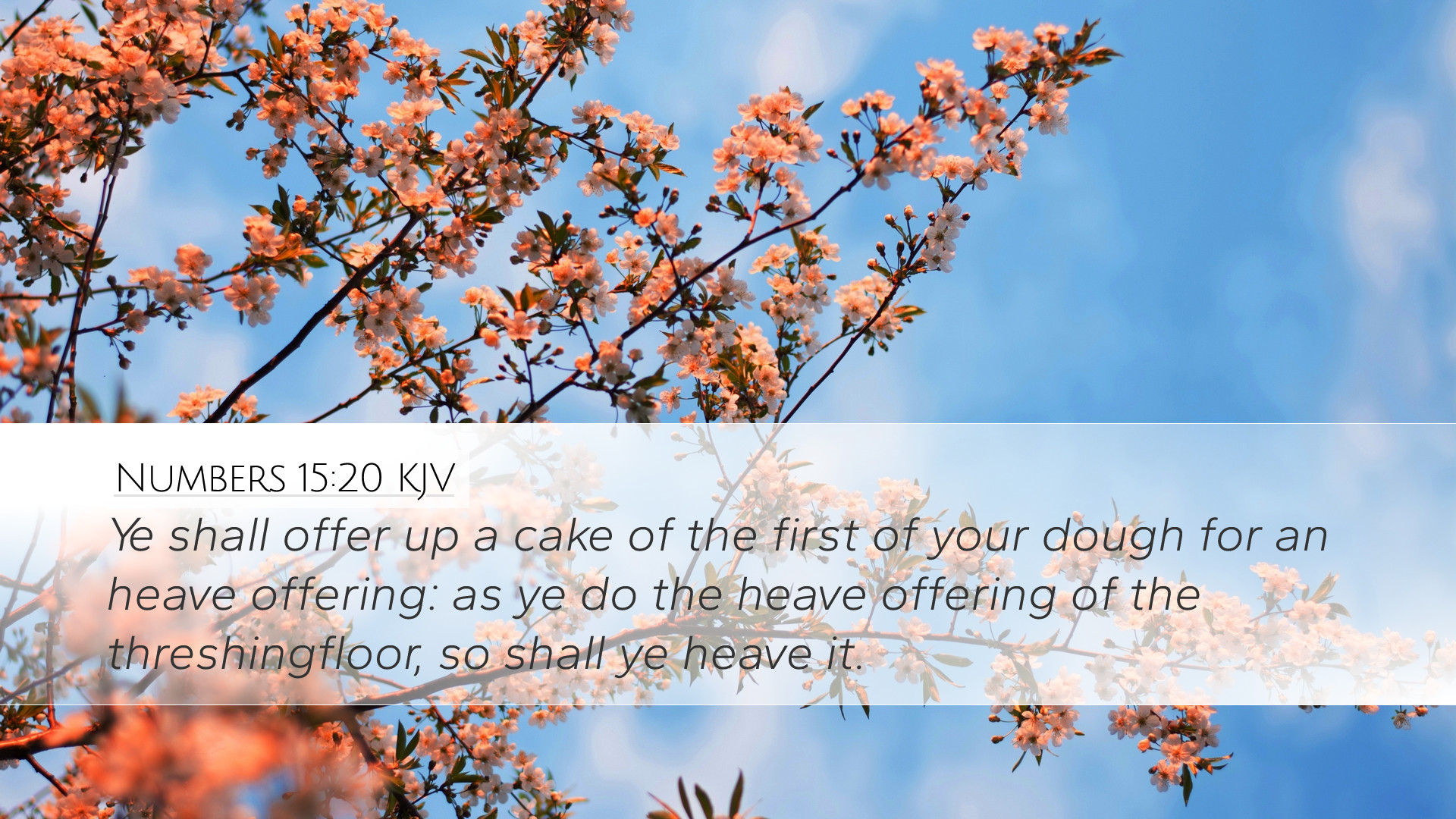Commentary on Numbers 15:20
Numbers 15:20 states: "You shall offer up a cake of the first of your ground meal as a heave offering." (ESV) This verse occurs in the context of instructions that the Lord gave to the Israelites concerning offerings and sacrifices. Through the lens of various public domain commentaries, we glean insights that illuminate its theological significance and practical applications in the life of believers.
Contextual Background
The Book of Numbers is a continuation of the narrative found in Exodus and Leviticus, as it recounts the journey of the Israelites through the wilderness. At this stage, God is providing detailed instructions regarding their worship and communal lifestyle. The verses surrounding Numbers 15:20 focus on the various offerings to be made to the Lord, emphasizing God's desire for His people to maintain a holy and reverent relationship with Him.
Theological Significance of Offerings
The directive in Numbers 15:20 regarding the heave offering serves multiple purposes:
- Expression of Gratitude: The first fruits represent a tangible acknowledgment of God's provision and blessing. Commentators like Matthew Henry emphasize that offering the first of the ground meal is a visible sign of appreciation for God's bounty.
- Sign of Dedication: Albert Barnes points out that by offering the first of their produce, the Israelites were dedicating not only their harvest but their entire labor and life to the Lord, reinforcing the sentiment that all they have belongs to Him.
- Foreshadowing Christ: Adam Clarke notes that Old Testament offerings often foreshadow the ultimate sacrifice made by Christ. The dedication of the first fruits can be seen as a precursor to the offering of Christ as the first fruits of the resurrection.
Practical Applications for Believers
Numbers 15:20 provides several lessons applicable to contemporary life in faith:
- Prioritizing God: Just as the Israelites were instructed to offer the first of their meal, modern believers are called to prioritize God in their lives. This can manifest as putting God first in time (through prayer and devotion), finances (through tithing), and resources.
- Generosity: The call to present offerings reflects the importance of generosity. Commentaries suggest that believers should cultivate a spirit of giving, recognizing that all they have is a gift from God.
- Community Worship: As the Israelites offered their cakes collectively, there is an implication for community worship within the church today. Engaging in communal offerings can foster a sense of unity and shared purpose in serving God.
Conclusion
In conclusion, Numbers 15:20 encapsulates pivotal themes within the broader narrative of the Israelites' relationship with God. The insights from Matthew Henry, Albert Barnes, and Adam Clarke provide a profound understanding of the nature of offerings, gratitude to God, and the significance of prioritizing Him in every aspect of life. Whether for pastors, students, theologians, or scholars, these lessons remain vital for living out one's faith authentically.


